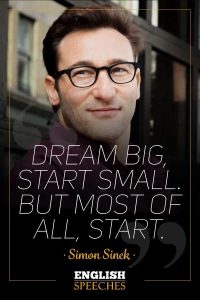《自律養生實踐家之旅313》 斷食的日常,是遠離病痛的唯一解方

在我的生命經驗中,面對人性幾乎成為日常工作。回顧過往接觸的無數個案,有一項共通的人性缺口格外顯眼:缺乏持續力。
持續,是所有人生考題中最容易被理解,卻最難被落實的一道。人們總等不及那滴水穿石的成果,也無法忍受聚沙成塔的漫長。
人生雖苦短,卻又必須經歷長期努力。努力成為一種根本態度,因為生命的受限,才顯出堅持的價值。
人類社會創造出龐大的醫療產業,彷彿健康可以被「歸還」。雖說醫者初衷未必如此,但病患的潛在欲望卻不斷加深對醫療的依賴。
醫病關係雖非買賣,卻也隱約透露出一種「對價性質」:多數人潛意識裡,只剩下一個簡化的信念:「花錢買健康」或「專業成就健康」。
如果這僅是少數人的誤解,那還容易修正;問題是,幾乎全人類都默默陷入了這種依賴。而想要扭轉這樣的集體偏執,願意站出來的力量,正逐漸式微。
我們都明白,一個疾病真正「發作」的那天,往往是你早已忽略身體十年、甚至二十年的訊號所累積而來。這也是一種「持續力」:持續的忽視與執迷不悟。
生病的「意圖」,在生活習慣中日日醞釀。當身體發出警訊,多數人第一反應是想辦法「快速解除症狀」,而非真正面對病痛背後的生活細節。
以失智症為例,許多高齡疾病並非突如其來,而是時間的總和,尤其是長年過度用藥與慢性睡眠不足的結果。這些看似微不足道的習慣,長年累積,終將導致腦部廢物無法代謝,進而發病。
如果失智是終點,那麼我們該反思,這樣的結果是否源自多年來累積的「錯誤努力」?
再看大腸癌,一個人的腸道要積累多少廢物與情緒,才會演變成如此嚴重的病變?
很多人誤以為「每天有排便」就是正常,但排便不等於排乾淨。當壞情緒長期與腸道廢物共存,最終必定引爆。這也是一種「持續力」,只是方向錯了。
值得慶幸的是,台灣這塊土地,賦予我們實踐斷食的日常最優渥的條件。我們擁有全世界最豐富的作物資源,也因此有機會接觸到最便捷、最自然的斷食方式。
斷食,不只是節食,而是讓我們與身體重新連結的途徑。在斷食的過程中,身體得以系統性的排出長年囤積的毒素;那些藏在身體深處的堵塞與沉積,終於有機會被清除。
深入實踐斷食的概念,在世界上可能找不到第二個像台灣這樣適合的地方。這並非用來比較的資源,而是一種值得珍惜與傳承的文化福氣。
我們不該將這份福氣藏私,而應引導更多人認識斷食、實踐斷食,讓它從口號變成生活中的日常。
我們每天都在吃、每天都在生氣,這些都在製造身體的新毒素,而解方,就是每天排除、日日清理。
年度大掃除很重要,日常的清潔更是根本:「今日事今日畢」才是真正的健康習慣。
從大自然的角度看,土地為何需要休耕?這正是身體修復的最佳比喻。可惜的是,現代醫療體系早已遺忘自然的運行邏輯,原因就在人性的干擾。
人類愈仰賴大腦,便愈遠離身體的智慧。大腦不知道的,身體知道;大腦忘記的,身體記得。而斷食,正是讓我們重新聽見身體語言的契機。
煮熟的食物不冷藏,一天就會發臭腐敗,發生在身體內的也是如此。若想把這些敗壞的內在損害降到最低,唯一的方法,就是讓斷食成為生活的日常節奏。
斷食之所以難以落實,不是因為它艱深,而是因為我們習慣讓大腦主導一切,遺忘了如何站在身體的立場看世界。
我們常說要愛自己、照顧自己,但很少人能從身體的立場定義愛。
感謝斷食,也感謝台灣這片土地給予我們學習斷食的機會。只有當斷食真正融入生活、化為日常,才能成為我們遠離病痛、全然健康的唯一解方。
(放膽做夢,從小處著手,但最重要的是,開始行動。)
Fasting as a Daily Practice: The Only True Remedy for Illness
In my life experience, confronting human nature has become a daily occupation. Reflecting on countless cases I’ve encountered, one trait of human nature stands out: the lack of perseverance.
Perseverance is perhaps the easiest concept to understand, yet the hardest to put into practice. People are rarely willing to wait for water to pierce stone, or to endure the long process of building a tower grain by grain.
Life is short, yet it demands long-term effort. That effort, therefore, becomes a fundamental attitude. It is precisely the limitation of life that reveals the value of persistence.
Modern society has created a massive healthcare industry, as if health is something that can be “restored” or “reclaimed.” While this may not be the intention of medical practitioners, the unconscious desire of patients continues to deepen their dependence on the medical system.
Though the doctor-patient relationship is not a transaction in the literal sense, it does carry an implicit sense of exchange. Most people have reduced their beliefs to one simplistic notion: “You can buy health” or “Health is the result of professional intervention.”
If this misunderstanding were limited to a few individuals, it would be easy to correct. But the problem is that almost all of humanity has silently fallen into this dependency. And the force needed to reverse such collective delusion is fading.
We all know that when illness finally “strikes,” it’s often the result of ignoring bodily signals for ten or even twenty years. This too is a form of “perseverance”—a continual refusal to listen, a persistent blindness.
Illness is not sudden. It is brewed daily in the patterns of our lifestyle. When the body sends warnings, most people immediately seek to “eliminate the symptoms,” rather than examine the habits that caused them.
Take dementia, for example. Many age-related diseases don’t come out of nowhere. They are the result of time—especially years of overmedication and chronic sleep deprivation. These seemingly insignificant habits, when accumulated, eventually block the brain’s waste clearance system and give rise to disease.
If dementia is the endpoint, we must ask: is it the result of years of “misguided effort”?
Consider colon cancer—how much waste and emotion must a person accumulate in the gut before it manifests as such a severe condition?
Many people mistakenly believe that “daily bowel movements” mean everything is fine. But elimination does not mean complete cleansing. When negative emotions coexist with intestinal waste over long periods, they will eventually erupt. That too is a form of “persistence”—only in the wrong direction.
Fortunately, Taiwan offers one of the most ideal environments for making fasting a part of daily life. We are blessed with the world’s richest agricultural resources, which in turn give us access to the most natural and accessible fasting practices.
Fasting is not merely dietary restriction. It is a pathway to reconnect with the body. Through fasting, the body is given a systematic opportunity to expel toxins and eliminate the deep blockages and residue it has silently stored for years.
It’s rare to find another place in the world as conducive to practicing fasting as Taiwan. This isn’t about comparing resources—it’s a cultural blessing that deserves to be cherished and passed on.
We should not keep this blessing to ourselves. Instead, we should help more people understand and adopt fasting, transforming it from a slogan into a way of life.
We eat every day. We get angry every day. These behaviors generate new toxins daily. The only real remedy is to eliminate and cleanse daily.
Annual detoxes are important, but daily cleansing is fundamental. “Do today’s work today”—that is the true health habit.
In nature, why must land be left fallow? It is the perfect metaphor for bodily repair. Sadly, modern medicine has forgotten the logic of nature, distorted by the interference of human ego.
The more we rely on the brain, the further we drift from the wisdom of the body. What the brain doesn’t know, the body remembers. What the brain forgets, the body recalls. Fasting is our chance to listen once again to the language of the body.
Cooked food, if not refrigerated, will rot within a day. The same decay occurs within the body. If we wish to minimize this internal deterioration, the only solution is to make fasting a daily rhythm of life.
Fasting is not difficult because it is complicated, but because we are accustomed to letting the brain dominate everything. We have forgotten how to see the world from the body’s perspective.
We often speak of loving ourselves, caring for ourselves. But few people ever define love from the body’s point of view.
I am grateful for fasting, and grateful for the land of Taiwan for giving us the opportunity to learn it. Only when fasting is truly woven into daily life can it become our one and only pathway to a pain-free, fully healthy life.


